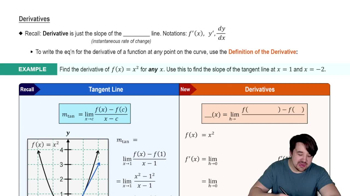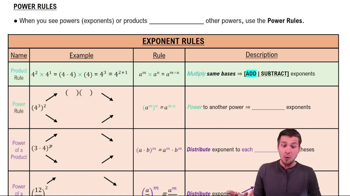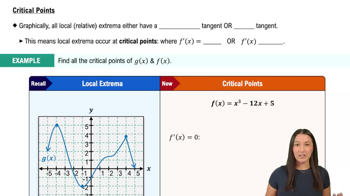If possible, evaluate the following derivatives using the graphs of f and f'. <IMAGE>
b. (f^-1)'(3)
 Verified step by step guidance
Verified step by step guidance Verified video answer for a similar problem:
Verified video answer for a similar problem:



 3:59m
3:59mMaster Derivatives of Linear Functions with a bite sized video explanation from Patrick
Start learning